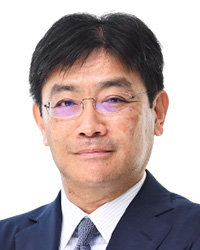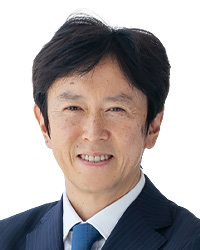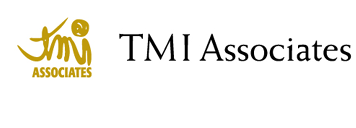Japan’s non-fungible tokens (NFTs) market emerged in early 2021 with many companies since entering the business, which continues to grow and expand. With a wealth of internationally competitive IP such as animation, manga and games, NFT-related business in these fields has become very active. In addition, many companies have also started NFT-related businesses in the sports industry.

Senior Partner
TMI Associates
On the other hand, some existing laws and regulations have been a hindrance to starting new NFT-related businesses. The authors described the updated status of NFTs under Japanese law in the article titled “A comparison of regulations surrounding NFTs”, published in the September/October 2021 issue of Asia Business Law Journal.
Since then, no new laws or regulations relating to NFTs have been enacted, nor have any guidelines been issued by the Japanese government. But a number of project teams have been set up by parliamentarians and relevant industry associations to examine existing and possible problems with the current laws and regulations, organise legal interpretations and lobby the government on the need to amend the laws.
This article introduces two important legal issues that are real problems for NFT-related business in Japan, providing guidance on how to resolve them, as well as the current state of debate.
GAMBLING-RELATED OFFENCES
The Japanese Penal Code prohibits any act of gambling (i.e., the contesting of gaining or losing property by winning or losing by chance) that could result in criminal penalties for those who engage (Penal Code, article 185).
The method of selling NFTs at random is one of the related businesses gaining popularity worldwide. For example, when selling digital trading card NFTs, businesses usually create a package and randomly combine multiple NFTs into its package, with contents revealed after purchasing them.

Partner
TMI Associates
But there is debate as to whether or not the formation of a secondary distribution market by an operator in the random sale of such NFTs may constitute a prohibited gambling offence.
The reason is that if the NFT purchased as a package on the primary distribution market is traded on the secondary distribution market at a lower price. The purchaser is considered to have obtained the NFT worth less than the price actually paid on the primary distribution market, and the purchaser is perceived to be losing property for the difference. This concern has deterred many businesses from launching random NFT sales with a secondary market.
Regarding this issue, many legal experts strongly suggest that since the price formation carried out by users in the secondary distribution market is based on circumstances separate from the sales price formation carried out by sellers in the primary distribution market, the market price in the secondary distribution market should not be taken into account when calculating the value of NFTs obtained by users in the primary distribution market.
Therefore, the establishment of a secondary distribution market when selling NFTs through a random method should be assessed as not constituting a gambling offence. Given the situation, on 12 October 2022, the Japan Contents Blockchain Initiative, an industry association with a large number of content-related companies as members, jointly with other blockchain-related industry associations published industry guidelines on the random sale of NFTs.
The guidelines state that as long as the seller does not set the purchase price or other resale price on the secondary distribution market – and does not purchase or resell the NFTs on its own – there should be no problem with the seller operating and managing the secondary distribution market on its own, and it does not constitute a gambling offence.
The guidelines also state that in cases where individual sales are conducted in addition to random sales in the primary distribution market, the selling price of random sales must not exceed the lowest selling price set at the time of individual sales for the NFTs that appear. As the content of these guidelines is only the industry association opinion, careful consideration is required when actually operating such business, and an official opinion on this issue from the regulator is awaited.
Nevertheless, publication of these guidelines will encourage operators to conduct random NFT sales business with a secondary distribution market, and is expected to be a catalyst for further development of NFT-related business in Japan.
ESCROW SERVICES
Trading of NFTs on platforms is now dominated by the use of crypto assets as payment. To ensure the safety of NFT transactions between users on platforms, there is a demand for platforms to provide escrow services.

Associate
TMI Associates
Namely, platforms should not only act as an intermediary in the transaction, but also receive payment from the buyer on behalf of the seller, and deliver payment to the seller after confirming delivery of the NFTs. Such escrow services are already active in Japan, such as in e-commerce.
However, when providing escrow services for crypto assets, the platform manages them between receiving from the buyer and delivering to the seller, which may fall under the definition of “managing crypto assets for others”, as stipulated in the Payment Services Act. Therefore, based on the act, it may be necessary to obtain registration as a crypto asset exchange business.
But the hurdles to obtaining registration as a crypto asset exchange business in Japan are relatively high, as various requirements are imposed including the establishment of a financial basis, management system and compliance system. Therefore, obtaining such registration is not necessarily easy for a platform without crypto assets exchange business as its main business. This problem is clearly a major obstacle to securing NFT transactions between users.
With regard to money escrow services currently provided in e-commerce, in practice the act of a platform temporarily managing money is merely a preparatory act to fulfil its own obligation to deliver money to the seller, and is therefore not considered to be managing money for others. It is organised as not being a deposit, which is prohibited under the Act Regulating the Receipt of Contributions, Receipt of Deposits and Interest Rates.
As such, money escrow services and crypto assets escrow services should not in theory be treated differently, according to many legal experts. They suggest that crypto asset escrow services provided by platforms in NFT trading transactions between users should also be organised as not managing crypto assets for others. Registration as a crypto asset exchange business should therefore not be required for such services.
However, certain guidelines are considered necessary for the storage of crypto assets, as the risk of leakage is higher than for storage of money, and more careful measures against money laundering are required. Accordingly, voluntary members of parliament published a white paper on NFTs in April 2022, requesting the Financial Services Agency (FSA), which has jurisdiction over the crypto assets exchange business, to clarify the rules in this regard. Businesses are advised to pay attention to the FSA’s formulation of rules in the near future.
CONCLUSION
Along with these two highlighted recent legal issues, many others have arisen that could hinder the growth of NFT-related businesses as they expand.
How NFT-related businesses should be assessed when applied to existing legal and regulatory frameworks, and whether new laws and regulations should be created, are also subject to active discussion and are currently important considerations for the government.
Market participants need to be aware of recent developments in Japanese laws and regulations, and should seek advice from knowledgeable counsel.

23/F, Roppongi Hills Mori Tower
6-10-1 Roppongi, Minato-ku
Tokyo – 1066123, Japan
Tel: +81 3 6438 5511
Email: info_general@tmi.gr.jp



























